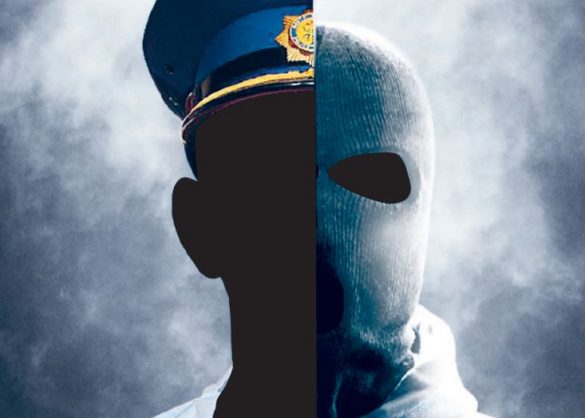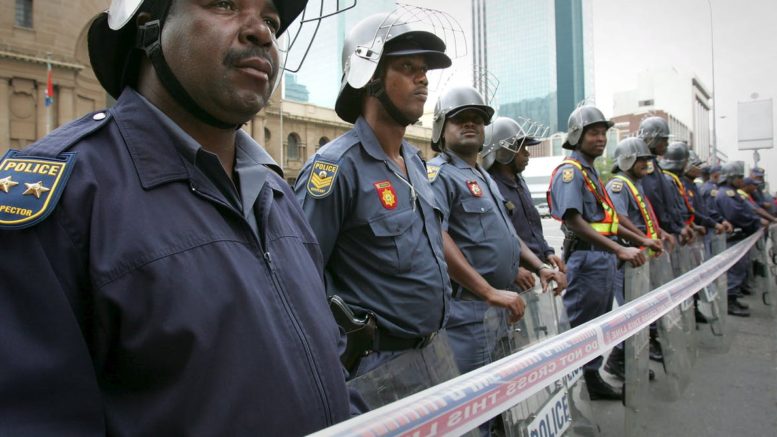Brian Sokutu and Simnikiwe Hlatshaneni

Graphic: Costa Makola.
More than 4,000 police officers have criminal records, largely due to government not implementing provisions of the National Development Plan, an expert says.
Government’s failure to implement provisions of the National Development Plan (NDP) recommending the professionalisation of the SA Police Service (SAPS) has exacerbated the phenomenon of the SAPS attracting rogue elements – leading to the force having more than 4,000 members with criminal records, a security expert has pointed out.
Institute for Security Studies (ISS) specialist Johan Burger was commenting on Gauteng community safety MEC Faith Mazibuko’s revelation this week that there were numerous police officers in the province with criminal records.
Of 137 Gauteng police officers arrested between 2017 and 2019, 124 were awaiting trial and only 13 were convicted, Mazibuko wrote in a reply to a question by the Democratic Alliance’s (DA) John Moodey.
Nationally, the proportions were even higher.
ALSO READ: High crime numbers for cops not always what it seems
According to Police and Prisons Civil Rights Union (Popcru) spokesperson Richard Mamabolo, the situation required the urgent implementation of the NDP’s recommendations, which included improved vetting.
A total of 4,174 members of the police have criminal records, according to official statistics announced by Police Minister Bheki Cele in April this year.
Officers had records for crimes including kidnapping, assault, theft, and fraud. Among them were 32 senior officers.
According to Burger, none of the recommendations in the NDP had been implemented by government.
“The NDP clearly spells out how we can get rid of bad elements within the police service,” said Burger.
The NDP recommended professionalising the police by enforcing the code of conduct and a police code of ethics, appointing highly trained and skilled personnel, and establishing a body to set and regulate standards.
It also called for the convening of a National Policing Board to set standards for recruiting, selecting, appointing, and promoting police officials and officers, developing a code of ethics, and analysing the professional standing of policing based on international norms and standards.
“We are now faced with so many police officers accused of having committed serious crimes,” Burger said. “The biggest concern is the delay in the finalisation of the cases. The National Prosecuting Authority should determine why cases are taking so long. This clearly undermines the public’s trust and confidence in the police service – something which is bad for the image of the force.”
According to Mamabolo, Popcru will increase pressure on government to implement the NDP’s strategy for improving policing.
“The majority of police remain committed to serving the country, but the conditions under which they are serving are demoralising,” he said. “Even some commissioners appointed at provincial or national level have some shady dealings.”
Burger suggested the system was open to political interference.
“It is a pity that the control, when it comes to appointing the national police commissioner, rests with the president – a process tainted by politics.”
– news@citizen.co.za

